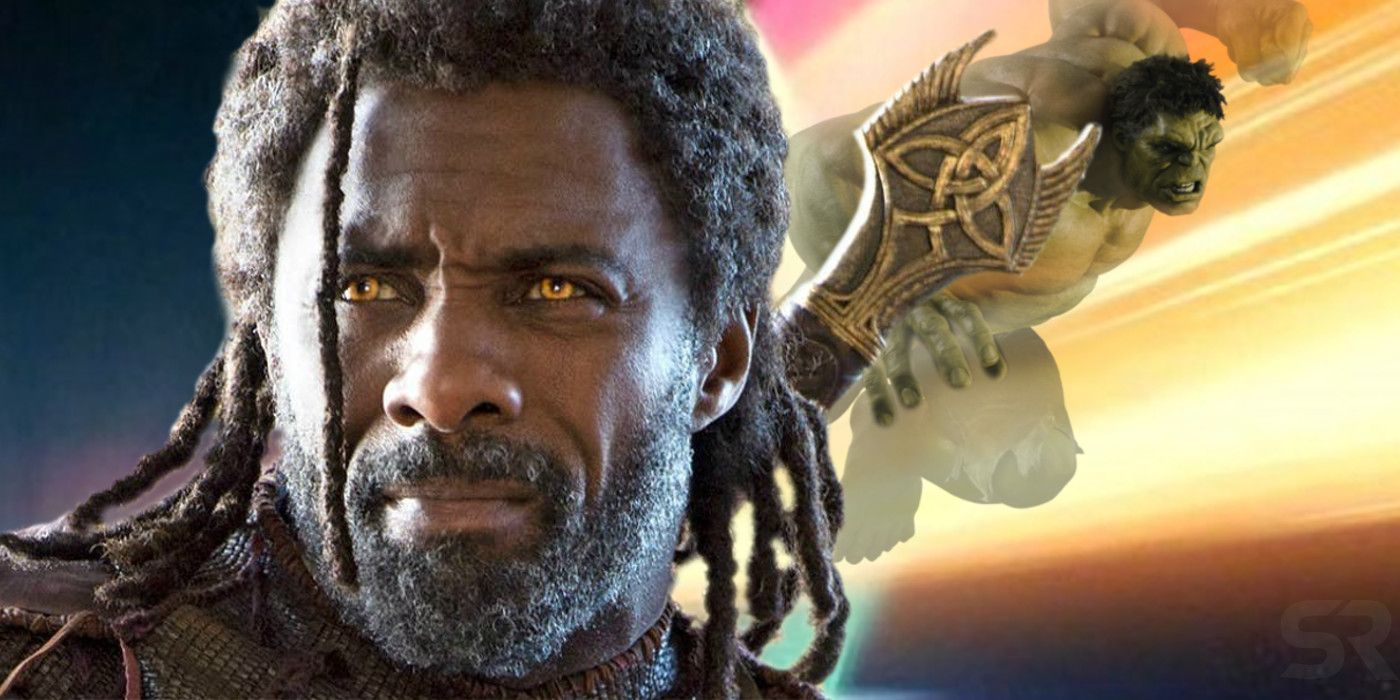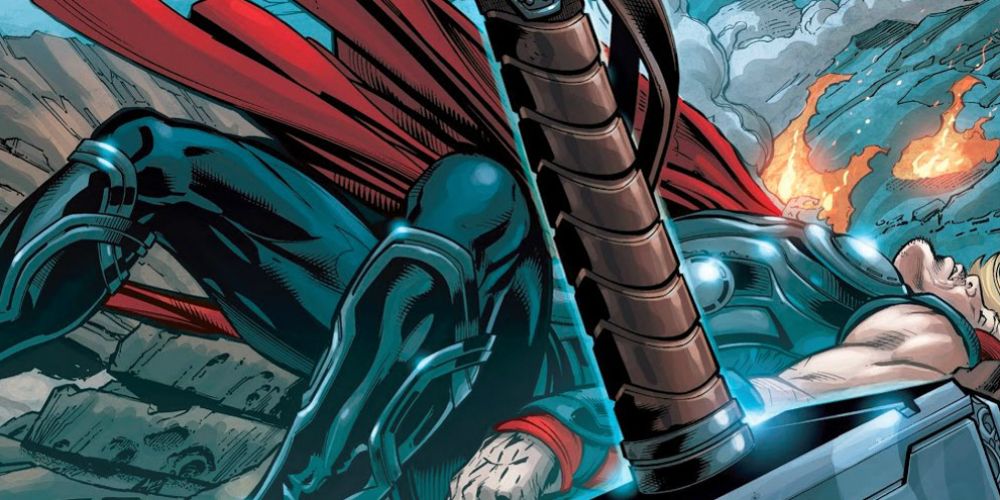Why did Heimdall save the Hulk, not Thor, in the opening scenes of Avengers: Infinity War? The first ten minutes of the film are a true testament to Thanos's power, as he effortlessly defeats the Hulk and Thor in combat. But Thanos's ultimate victory is spoiled by Heimdall's intervention, as the watchman of Asgard summons the Bifrost one last time. He utters a last heartfelt prayer, "All-Fathers, let the dark magic flow through me one last time." The line is a deliberate callback to The Avengers, where Loki claimed "dark energy" could be used to summon the Bifrost.
But, in a strange twist, Heimdall chooses to send the Hulk to Earth. It's a confusing choice on Heimdall's part. Of all the people on that refugee ship, the Hulk is the one Heimdall has the least reason to care about. He could have saved Thor, or even Loki, who's already proven his loyalty when he gleefully told Thanos, "We have the Hulk." Why did Heimdall choose to send the Hulk, and not one of the people he cared about instead?
Related: Did Marvel Change Hulk’s Story In Avengers: Infinity War?
It's a difficult question, one that mars an otherwise stunning opening scene. There is a possible solution in one of Marvel's official tie-in comics, and it has to do with the dangerous nature of dark magic.
Marvel's official Thor: The Dark World Prelude comic charts events between the first and second Thor films, including the events that got Thor back to Earth for The Avengers, after the Bifrost Bridge in the first Thor movie. The first issue sees the Asgardians become aware of Loki's actions on Earth, and of his theft of the Tesseract. Thor is furious, believing Loki means to gain his revenge by hurting those Thor has sworn to protect. Odin agrees to send Thor to Earth by tapping into "dark energy."
The All-Father reveals that there is a heavy price to pay for wielding dark magic. Odin has only recently awoken from the Odinsleep, and his health will suffer as a result, which may have been a contributory factor to Odin's eventual death in Thor: Ragnarok. The price is not only paid by the one who summons the Bifrost using dark magic; it is also paid by the one who travels through it. The experience of traveling through the Bifrost in this way is enough to leave even the mighty Thor crying out in pain, and he is rendered unconscious upon his arrival on Earth. The Asgardians actually fear the journey has killed the Thunder God, and their fears are only calmed when Heimdall finally confirms he has awoken safely on Earth.
Related: Avengers: Infinity War Actor is Going to Miss Playing Heimdall
This suggests Heimdall's ploy in Avengers: Infinity War was even more desperate than it already appeared. Using dark magic didn't only risk his own life - it could potentially kill anyone he transported with it. This wasn't simply a last ditch effort to save Asgard - Heimdall knew it was too late for that. This was Heimdall's gamble to save the entire universe, meaning he had to send the person with the best chance of surviving to warn Earth, where 2 Infinity Stones lay in wait.
Only the strongest on the Asgardian vessel had a chance of surviving, and Thor had already been weakened dramatically by Thanos. The Hulk had taken a beating too, but he was the only one left who had the potential strength to endure travelling through the Bifrost in this way. Thus Heimdall summoned the Bifrost, and sent the Hulk to Earth in order to issue a warning; Thanos was coming.
Ultimately, Hulk survived the trip (turning back to Banner) and warning Tony Stark and Doctor Strange of Thanos' genocidal schemes while Thor met up with the Guardians of the Galaxy, which enabled him to travel to Nidavellir, relight the forges, and craft Stormbreaker - the weapon the almost killed Thanos. The Avengers failed by a hair, but all their best chances at victory were because of this chance given by Heimdall. Since Banner was the one to warn Doctor Strange, enabling Strange to craft his ultimate plan, which is expected to prove victorious in Avengers 4, Heimdall probably made the right call.





